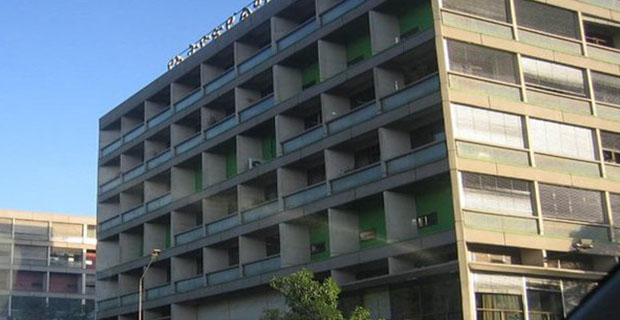
Radar | Dec 05,2020
The Development Bank of Ethiopia (DBE) is to float yet another auction for the Ayka Addis Textile Factory for a third time, despite its failure to renew its trade license.
The Bank's management has been in a pickle after failing to restart the plant operations or sell the asset to a third party over lack of a renewed trade license and unpaid taxes.
"The company is in trouble because of unpaid taxes and issues related to renewing trade licenses," Taye Jiru, head of the project rehabilitation and recovery directorate at the DBE, confirmed to Fortune.
DBE, however, continues to cover payroll for over 4,300 of Ayka's employees. The attempt by Ethio Capital Investment S.C., established by the DBE to manage and administer the assets of foreclosed companies, to restart operations bore no fruit.
This is a major setback for the Bank under reform, whose executives are determined to bring down the non-performing loans (NPL) ratio, which once hit almost 40pc. Loan defaults by companies like Ayka Addis take the major share of the sick loans. At the end of the last fiscal year, DBE's non-performing loans reached 26pc, showing a decline of eight percentage points. The Bank's managment attribute this to the recovery of unpaid loans and adopting a stringent credit policy.
The DBE took possession of Ayka Addis in late 2018 after the company failed to pay back two billion Birr in loans taken before it started operations in 2010.
Ayka Addis was established in June 2006 by three Turkish shareholders and an authorised capital of one billion Birr, of which 679 million Br has been paid. During the establishment, the owners borrowed 813 million Br from the DBE. The factory exported its products to Germany, Spain, the United States, Japan, France and Canada, generating 400 million dollars in its eight years of operation.
Ethiopia earned a total of 140 million dollars from the export of textiles over the last fiscal year, accounting for less than four percent of total export revenues.
The company operated with 7,000 employees and had been reporting losses. In 2014, it reported a loss of 615.29 million and registered a loss of 312.8 million Br the following year. Located in Alemgena, 20Km west of Addis Abeba, Ayka Addis had suffered a total loss of 1.9 billion Br in four years, owing to a surge in production, sales, distribution and administration costs.
The Bank attempted to put the factory up for auction with a threshold price of 1.95 billion Br in July and August 2019, but no bidders showed up. The Bank is trying again, following the completion of a technical study by the Ministry of Trade & Industry upon request of the DBE.
The study focused on the machinery at the plant, which has been idle for years.
According to a person knowledgeable of the case, three-fourth of the company's capital was already used before the DBE repossessed Ayka Addis.
Banks put themselves at such default risks since they do not conduct sufficient project analysis before approving the loans, according to Sintayehu Demissie, lecturer of accounting and finance at Addis Abeba University.
"They need to do valuations on the types of machinery imported and ensure the company's return on investment is sufficient to repay the loans," he said.
Ayka is hardly the only textile factory in this situation.
Selendawa Textile S.C. and Saygin Dima have also been foreclosed on by the Commercial Bank of Ethiopia (CBE) for failing to repay loans.
The investors bring in old, poor-quality machines whose productivity is very low, said Liben Girma, human resources manager at Eltex Textile & Garment Factory.
PUBLISHED ON
Sep 18,2021 [ VOL
22 , NO
1116]

Radar | Jun 25,2022

Fortune News | May 18,2019

Radar | Feb 15,2020

Fortune News | Jul 13,2019

Fortune News | Aug 17,2019

Dec 22 , 2024 . By TIZITA SHEWAFERAW
Charged with transforming colossal state-owned enterprises into modern and competitiv...

Aug 18 , 2024 . By AKSAH ITALO
Although predictable Yonas Zerihun's job in the ride-hailing service is not immune to...

Jul 28 , 2024 . By TIZITA SHEWAFERAW
Unhabitual, perhaps too many, Samuel Gebreyohannes, 38, used to occasionally enjoy a couple of beers at breakfast. However, he recently swit...

Jul 13 , 2024 . By AKSAH ITALO
Investors who rely on tractors, trucks, and field vehicles for commuting, transporting commodities, and f...

Jun 28 , 2025
Meseret Damtie, the assertive auditor general, has never been shy about naming names...

Jun 21 , 2025
A well-worn adage says, “Budget is not destiny, but it is direction.” Examining t...

Jun 14 , 2025
Yet again, the Horn of Africa is bracing for trouble. A region already frayed by wars...

Jun 7 , 2025
Few promises shine brighter in Addis Abeba than the pledge of a roof for every family...